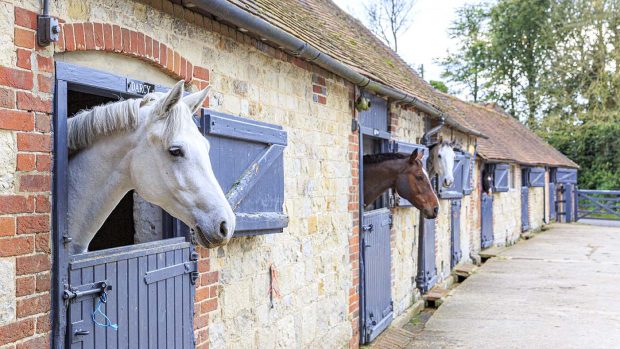Q: I run a livery yard as my business. What obligations and restrictions apply to the storage and disposal of manure from my yard?
KK, Surrey
WITH every horse producing around 40-50lb of dung each day, muck management is often the bane of horse owners’ lives.
Horse manure produced by commercial establishments — livery yards and riding schools — is classified as “controlled waste” and, as such, is subject to regulation under the Environmental Protection Act 1990 and the Waste Management Licensing Regulations 1994.
According to solicitor Lucy Jay of Travers Smith, this legislative regime imposes a duty of care on anyone producing and managing controlled waste, including livery yards.
“Commercial yards have a duty to ensure muck is stored, treated and disposed of in accordance with applicable legislation,” she explains.
“Generally, subject to certain exceptions such as composting, they will have to dispose of manure via a registered waste carrier. Breach of this duty of care — for example, carrying waste without a relevant authorisation or transferring waste to an unregistered company or person — is a criminal offence for which an offender may be fined.”
The Environment Agency (EA) is responsible for registering waste carriers, and its website offers an online search option. However, carriers who take horse manure are less common than those who remove other types of waste, so you may need to shop around and look in your local equestrian trade paper.
Don’t be tempted to use a local farmer who promises to take your waste away for a bargain price — if he is not registered with the EA, the duty of care to dispose of the muck still falls on you and you may be prosecuted.
Two years ago, there was a furore when it was announced that equestrian businesses that compost muck to use as fertiliser would have to pay an annual fee of up to £500. Thankfully, changes to the composting exemption did come into force and the rules still do not apply if manure is composted on site or is produced on legally defined agricultural land.
Manure from horses kept privately within the curtilage of a residential property is classified as household waste and is also not subject to rules applicable to manure produced commercially.
“Regarding muck storage, it is an offence to pollute ground or surface waters — this is a potential issue for private and commercial stables, where manure is stored and fluids could drain from the muckheap into nearby surface or ground water,” says Lucy Jay.
“Government guidance states that muck storage areas should have an impermeable base that slopes, so the effluent can be collected easily in a sealed underground tank. Temporary muckheaps should be sited where there is no risk of polluting watercourses. “
Spreading composted muck on resting fields is another option.
“Decomposition varies, but typically muck will have disappeared from the surface of the paddock within two to three months, although decomposition and breakdown can be accelerated by chain harrowing,” says Kevin Melling, of Millcreek Compact Manure Spreaders.
“The heat generated from a proper composting process will kill off parasite larvae.”
Information
Environment Agency Tel: 08708 506506 www.environment-agency.gov.uk
Millcreek Compact Manure Spreaders Tel: 01652 679000 www.millcreek.co.uk
Travers Smith Tel: 020 7295 3000 www.traverssmith.com
This Q&A was first published in Horse & Hound (23 August, ’07)



